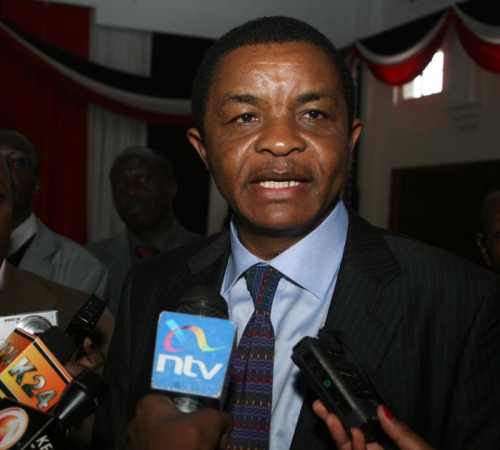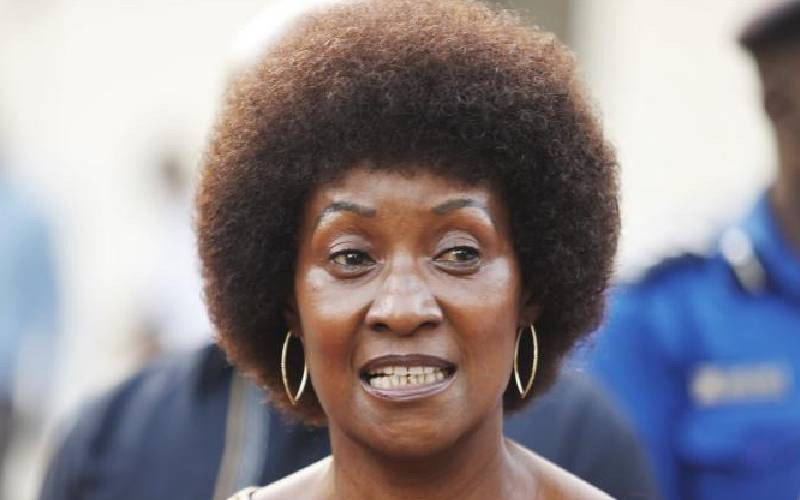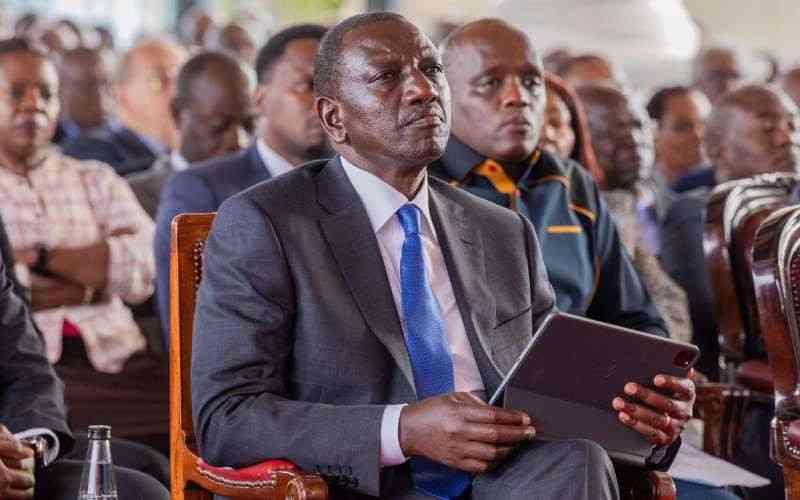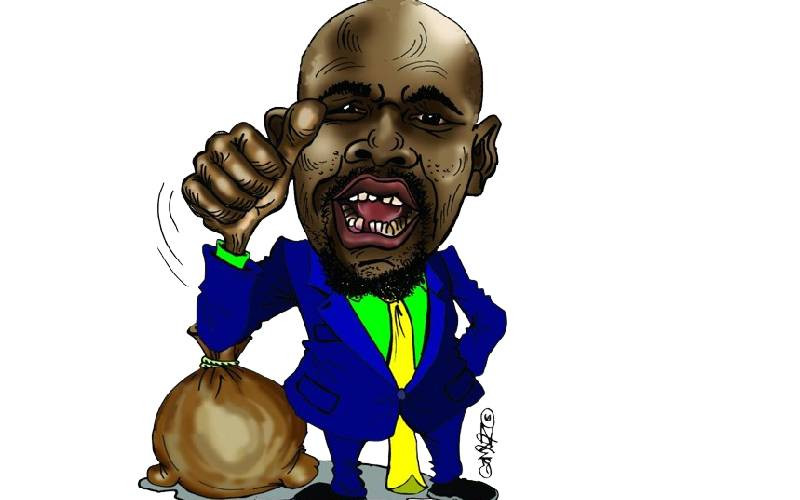
Kenya: The battle for prime jobs in government is beginning to take shape as contracts of top parastatal chiefs expire between March and September this year.
The Government is expected to make appointments of major State corporations that have no boards pending implementation of a raft of reforms meant to overhaul the sector.
Delays in restructuring has been occasioned by two pending Bills--Government Owned Entities Bill 2014 (GOE) and the National Sovereign Wealth Fund Bill 2014 — that must be passed by Parliament.
But the situation in running these entities has become so strenuous and the process of filling the vacancies or merging some entities with others so politicised that the Government is now considering making fresh appointments.
Implementation Committee on Parastatal reforms has, however, dispelled reports that the much felt leadership vacuum in such entities has been occasioned by pending reforms.
“We have resolutions from this committee that clearly states that vacant positions in several entities be filled pending the implementation of the proposed reforms. Nobody should, therefore, blame the ongoing restructuring for the leadership vacuum in these entities,” Committee Secretary Ms Jane Mugambi says.
Ordinarily, appointments to such positions are used by the Government of the day to reward their political cronies and this is likely to renew a new political battle.
In an official document exclusively obtained by ‘The Standard on Saturday’ dated January 21, 70 parastatals continue to operate without boards while more than 100 have crucial vacant positions including those of chairpersons, chief executive officers (CEO), and managing directors.
Absence of boards of directors raises critical operational challenges for the affected institutions given that the boards have certain responsibilities, among them approving the procurement plans.
Crucial official
PSC chair Margaret Kobia, also alluded to the ongoing crisis in such entities saying Government will engage stakeholders to ensure vacant positions are filled as soon as possible.
“If the term of a crucial official is coming to an end in view of the appointing authority, then they can choose to make appointments for an interim period until the new law comes into place. Government will hold consultations to ensure that such appointments are made because the positions of CEOs and managing directors are crucial, “she says.
Most entities that have positions of top leadership coming to an end within the first quarter of this year, are not necessarily part of the proposed mergers.
Official documents detailing updated records of State corporations has captured all corporations with vacant positions and those whose top officers are expected to exit in a few months time.
Stay informed. Subscribe to our newsletter
Kenya Revenue Authority (KRA) Managing Director John Njiraini’s term expires in March. Rural Electrification Authority (REA) has no board. The contract term of Mr Simon Gicharu (chairperson) ends in May.
Kenya Electricity Transmission Company Chair Justus Kageenu left the institution on January 8, leaving a gap that has not been filled to-date. The Government will also be seeking to appoint a new board to head National coordination Agency for Population and Development. Its chairperson Abdisala Mohammed Noor’s term expired on December 20, last year.
Drought Management Authority’s Chair Mr Ibrahim Hussein’s term comes to an end in April, while that of Prof Francis Ndung’u (Kenya School of Government) expires in September. Kenya Pipeline Company (KPC) chair Daniel Wamahui Kiongo’s term of office expired on January 8.
Universities have not been left out. Egerton University, for instance, will need both a chairperson and a vice chancellor as contract terms of Dr Albou Alubayo and Prof James Tuitoek respectively, come to an end in September.
The Technical University of Kenya does not have a chairperson while the position of the vice-chair Eng M Riungu, expired in February last year.The document indicates that no appointments have been made so far.
University of Kabianga, on the other hand, lacks a vice-chair as Prof Wilson Kipng’eno’s (Principal) term ends in May. These are a few examples of entities operating without a proper leadership, or whose leadership is expected to come to an end before end of September.
A senior Government official who spoke to us on condition of anonymity, said if appointments are to be made, then political considerations cannot be ignored.
“It is general knowledge that these appointments are marred with external interests. Most appointments pass through State House, which means it is purely political,” the source said.
There has been allegations that some regions of the country have been left out in the appointments of prime positions in Government.
Makueni Senator Mutula Kilonzo Junior yesterday said: “We have not seen the face of Kenya. The Elmolo are also Kenyans and yet they have been left out. The Constitution requires that all appointments reflect the map of Kenya. Tribal arithmetic is not a factor.” But legislator James Bett (Kesses) dismissed Kilonzo’s allegations: “The appointments have been quite fair considering proportionality of different communities.”
Board members will then advertise for positions of CEOs and Managing Directors where successful candidates are recruited competitively.
Kenya Nuclear Electricity Board, Kenya Bureau of Standards, Kenya Tourist Board (KTB), Kenya Wildlife Service (KWS), and Kenya Forest Service (KFS) among others, also lack functional boards. (See graphics)
In a recent Government report, PSC recommended that maximum periods within which State corporations can remain without substantive leadership should be guided by legislation.PSC noted that lack of functional boards in most parastatals for a considerable length of time, continues to jeopardise critical operations in such entities.
“Although this was attributed to anticipated reforms in State Corporations, performance of their roles was always in jeopardy since boards exercise critical responsibilities in the entities, “the report says.
If the proposed reforms are passed by Parliament and implemented, the Government will save up to Sh3.5 billion in taxpayers that will be channeled to development projects.
A team looking into the reforms and that was co-chaired by Mr Abdikadir Mohamed and Commercial Bank of Africa CEO Isaac Awuondo, has concluded its recommendations that include merging or dissolving of some entities.
If the proposals are passed by Parliament, 42 State corporations will be dissolved, 28 others merged and 22 others will have their roles transferred to other institutions
 The Standard Group Plc is a
multi-media organization with investments in media platforms spanning newspaper
print operations, television, radio broadcasting, digital and online services. The
Standard Group is recognized as a leading multi-media house in Kenya with a key
influence in matters of national and international interest.
The Standard Group Plc is a
multi-media organization with investments in media platforms spanning newspaper
print operations, television, radio broadcasting, digital and online services. The
Standard Group is recognized as a leading multi-media house in Kenya with a key
influence in matters of national and international interest.
 The Standard Group Plc is a
multi-media organization with investments in media platforms spanning newspaper
print operations, television, radio broadcasting, digital and online services. The
Standard Group is recognized as a leading multi-media house in Kenya with a key
influence in matters of national and international interest.
The Standard Group Plc is a
multi-media organization with investments in media platforms spanning newspaper
print operations, television, radio broadcasting, digital and online services. The
Standard Group is recognized as a leading multi-media house in Kenya with a key
influence in matters of national and international interest.









